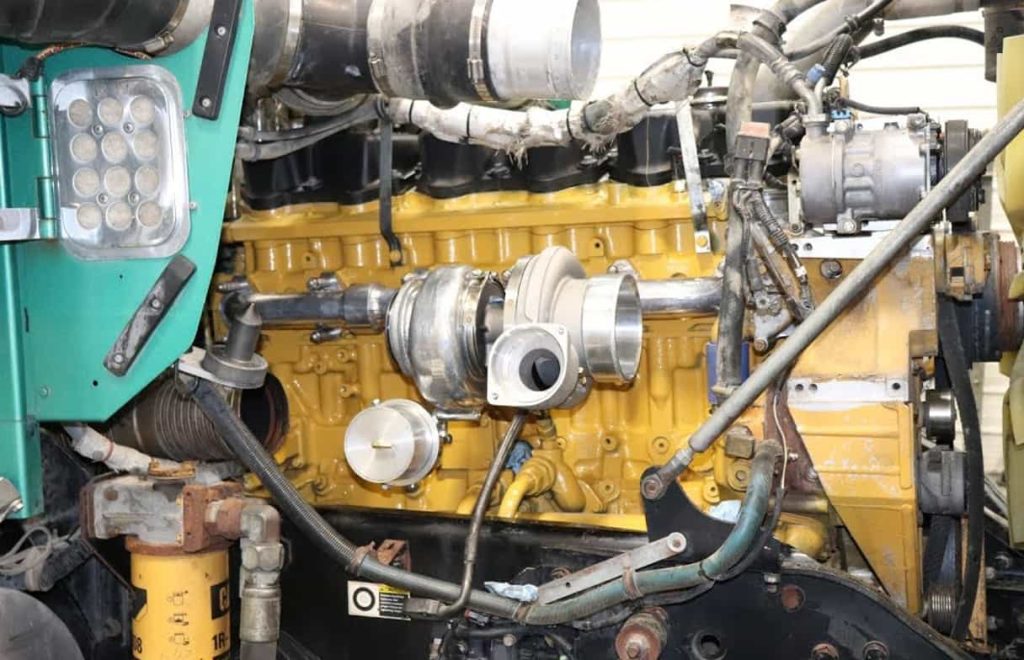Are you thinking of getting this engine, yet at the same time are concerned about some pertinent 8.2 Detroit diesel problems?
The Detroit diesel used to build only their dual-stroke cycle engines back in 1938. But since the later parts of the 1970s, these engines have been reported to be consuming more fuel than the 4-stroke cycle engines by their competitors. Therefore, Detroit diesel was keen to compete in the medium duty truck industry. The answer to this was to develop a lighter engine called the 8.2, which was coined as the fuel pincher.
This engine is highly regarded for its lack of power and reduced acceleration levels. They also decided to boost their turbocharged models lightly, with the intention of ensuring better performance, especially when running at a higher altitude.
But, this does not suffice in offering the power required, and many of these models have incurred a higher failure rate because of several issues with the engine. This is why it is good to understand more about what the 8.2 Detroit diesel engine can do and some problems it comes with.

8.2 Detroit Diesel Problems
What’s typical about the 8.2 Detroit diesel is that it comes with an open-deck or free-staning cylinder system, which is basically an open-deck design. It is light-build, which means it can be a bit of an issue where durability is a key requirement. Among the common problems experienced with it include blown head gaskets, spun bearings, and broken crankshafts. This is
why frequent failures that have led to prolonged and unplanned downtimes are experienced.
It was in 1990 when the last model year for the 8.2 engine was made. But the engine model has already been abandoned by many truck manufacturers including Ford because of the problems that came with it.
Among the 200,000 8.2 Detroit diesel engines that were sold, almost all of these have failed while still within the warranty period. Some of these were even catastrophic failures, which were concerning.
Today, only a few of these engines continue to be operational. Many parts suppliers continue to provide some common replacement parts for maintenance purposes such as filters, seals, rings, valves, pistons, and gaskets. Moreover, the Detroit Diesel discontinued just about every part and service assistance for this engine such as the cylinder heads, crankshafts, oil pans, connecting rods, camshafts, engine blocks, and rocker covers, among many others.
The discontinued service training and assistance makes it quite difficult for folks who own the engine who need to keep the engine running. To add to this problem, there are much fewer experienced and expert mechanics who can perform repairs to this engine, which is why failures are more common than ever.
As for the most common issue with the 8.2 Detroit diesel, this would be its open-deck design. It enables too much cylinder flexing, which ultimately ends in regular head gasket failures. There are also short piston skirts, and this leads to quick wear and tear of the rings, cylinders, and pistons. Plus, with a weaker bottom end, bearing and crankshaft failures are quite common.
Gasket failures occur because the top end of the cylinder moves too much. Thus, it sustains serious damage that causes normal combustion to blow this portion of the head gasket too easily. Therefore, there is pressurized engine coolant entering the cylinder each time the intake stroke happens.
There is also the possibility of more engine coolant getting into the cylinder close to the end portion of the exhaust stroke. This breach may result in catastrophic failures and hydrolocking, which happens when ample non compressible liquid gets into the cylinder and prevents the piston before the top-dead-center.
This issue with gasket failure is also linked with engine overheating. There are a few other reasons behind this overheating such as damages to the fan belts, coolant hoses leaks, water pump seal problems, and more.
When you compare the 8.2 with other diesel-powered engines, you can easily see why head gasket failures are common with it. Most diesel engine blocks come with machined decks and a cast, which support the top portion of your cylinder. The head gaskets are also squashed evenly against head gaskets. Moreover, many diesel engines have about 6 pieces of head bolts in a round pattern, providing the required tightness on the gasket.
But as for the 8.2 engine, this is not observed. The engine block does not have this feature, which impacts the stability. There is also a reduced head gasket mating surface for the 8.2, and this limits the sealing surface that proves to be quite inadequate.
Now, Diesel detroit has explained that they came up with their design to offer a longer cylinder cooling. Although it does offer some more cooling, the design causes the block to have a thinner cast, along with a lighter and cheaper quality.
Read More: Cat C15 Twin Turbo Vs Single – Which One Is Better?
Final Thoughts
There are many things about the 8.2 Detroit diesel that are not quite satisfactory in terms of performance, lifespan, and reliability. The frequent damage that the head gasket incurs, along with other problems linked with the design of the engine makes it less dependable as its counterparts.
This is the reason why it is important to pay close attention to these key concerns with the engine, which can significantly impact your bottom line when frequent repairs and replacements are required. To make matters worse, there are not a whole lot of experienced mechanics who are well-versed in repairing the 8.2 Detroit diesel when it breaks down. So, this is another thing to consider when you think of getting this engine for your vehicle.
my 8.2 keeps blowing the oil filter